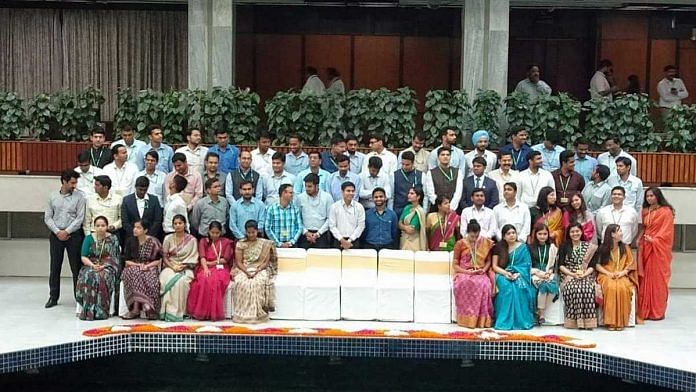New Delhi: A parliamentary panel has recommended that the government bring ‘specialised generalists’ who have domain-specific knowledge into the civil services to increase the efficiency of the bureaucracy.
In its report tabled in the Rajya Sabha last week, the Parliamentary Standing Committee on Personnel, Public Grievances, Law and Justice also suggested grouping ministries into clusters and assigning civil servants with domain-specific knowledge to specific clusters.
“Officers should be assigned to a particular cluster based on their knowledge, competency, interest and inclination,” the report stated.
The panel, with 41 members, was headed by BJP Rajya Sabha MP Bhupender Yadav.
‘Need of the hour is specialised generalists’
The committee in its report said “reforming of the administration” is the need of the hour.
In this context, the panel said India needs ‘specialised generalists’ in civil services, having domain knowledge and work experience in a particular field, and not either a generalist or a specialist.
The ‘generalist versus specialist’ debate in the civil service has been on for quite some time now.
The government’s decision to recruit talent laterally into the civil services was guided by the logic that IAS officers are ‘generalists’ who hop from one ministry to another through their careers and do not necessarily have expertise in any area.
On the recommendation of having ‘specialised generalists’, a civil servant told ThePrint, that it’s the need of the hour.
“We have been demanding this for a long time and this is the need of hour,” said the civil servant, who didn’t want to be named.
He also gave an example of how having domain-specific experts in the civil services can help in efficient functioning.
“Renowned poet and writer Ashok Vajpayi was made the secretary of the culture department in Madhya Pradesh a long time ago. The initiative to open the Bharat Bhavan, which is the hub of creativity in the state, was taken by him. What would have happened if Vajpayi was posted in the coal ministry?” he said.
Also read: IAS officers counter association president’s stand, say being ‘generalist’ is the strength
‘Transfer should be done on the basis of knowledge’
The panel suggested grouping ministries into small clusters such as rural cluster, social cluster and financial cluster, and deputing civil servants with suitable domain knowledge and experience to a particular cluster.
“Arbitrary postings can be debilitating and can affect the career trajectory of civil servants and the general administration,” the panel stated.
“What is the point of deputing an officer to a ministry where he will learn and understand problems of that ministry in a year’s time? And then when he will be transferred to some other ministry, he will take another year to understand problems of that ministry,” said a member of the parliamentary committee, who didn’t want to be named.
The member said if a civil servant has expertise in water crisis, he should be posted in the water ministry and not in the culture ministry.
“Once assigned to a particular sector, a civil servant should spend the rest of his career within the sector concerned. This system will enable civil servants to acquire skills, expertise and professional excellence in a particular domain,” he added.
Another member of the committee told ThePrint it’s better to run small ships, instead of big ones.
“Every transfer or posting of civil servants should be done on the basis of their knowledge and expertise and they should remain in that sector for the remaining part of their career for better productivity,” he added.
Also read: Unhappy with ‘generalist’ tag, IAS body wants appointment based on qualification



